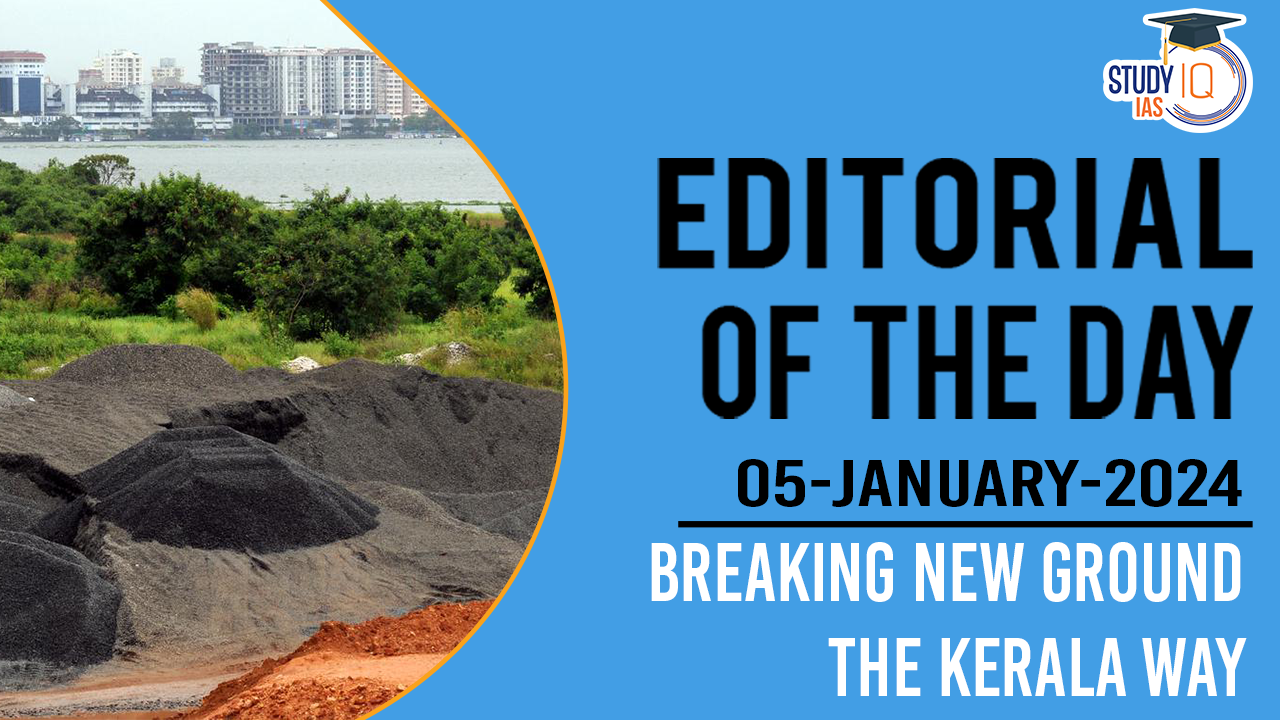Table of Contents
Context: The announcement of the Kerala Urban Commission in 2024 marks a significant development after a hiatus of 38 years since the National Commission on Urbanisation led by Charles Correa.
Introduction To Urbanisation
- From a meagre 5%(during Marx’s era) to a dominant 56%, urbanisation revolutionised humanity’s footprint. But this shift wasn’t just about bricks and mortar.
- It brought profound climate impacts, sprawling land use, and cityscapes riven by inequality.
- Pollution, housing struggles, and unequal access to basic needs like water and sanitation plague these urban giants, stark reminders of the duality and informality often woven into the fabric of capital accumulation.
We’re now on WhatsApp. Click to Join
Challenges Related To Urbanisation
- Impact on Climate and Society: Urbanisation has led to significant climate change impacts and socio-spatial transformations, including land use changes, evolving building types, and increasing urban disparities.
- Challenges of Urban Development: Urban areas face numerous challenges such as pollution, housing crises, water and sanitation issues, and the creation of highly unequal city spaces, necessitating comprehensive management.
- Post-Independence Urban Development in India: India’s urban development post-independence, particularly during the Nehruvian era and the 1990s, highlighted the pitfalls of centralised planning and the impact of privatisation, underscoring the need for a different approach.
- Shift in Economic Drivers: The decline in manufacturing as a central urban economic activity has led to increased informal sector growth, calling for new urban planning strategies.
- Failure of Fragmented Approaches: Existing mission-based approaches like Swachh Bharat, AMRUT, HRIDAY, and PMAY have not fully achieved their objectives, demonstrating the need for a more integrated strategy.
- Complex Urban Governance: The governance of cities is complicated, with issues like the non-transfer of the 18 subjects under the 12th Schedule and debates over managerial vs. elected city leadership.
- Financial Centralization Concerns: The over-centralization in financial matters, as evident from the Fifteenth Finance Commission’s recommendations, adds to the complexity of urban governance.
Kerala Urban Commission as a Model
- Kerala’s initiative in forming an Urban Commission aims to address urban complexities.
- The commission’s mandate to create a 25-year urban development roadmap for Kerala highlights the need for long-term, holistic urban planning that aligns with global and national urban trends.
- The Kerala Urban Commission, with its comprehensive approach to urban challenges, serves as a model for highly urbanised states like Gujarat, Maharashtra, Tamil Nadu, and Punjab to emulate and learn from.


 Utkal Divas 2025: Odisha Foundation Day ...
Utkal Divas 2025: Odisha Foundation Day ...
 List of Military Exercises of India 2024...
List of Military Exercises of India 2024...
 GPS Spoofing and Its Impact in India: A ...
GPS Spoofing and Its Impact in India: A ...





















